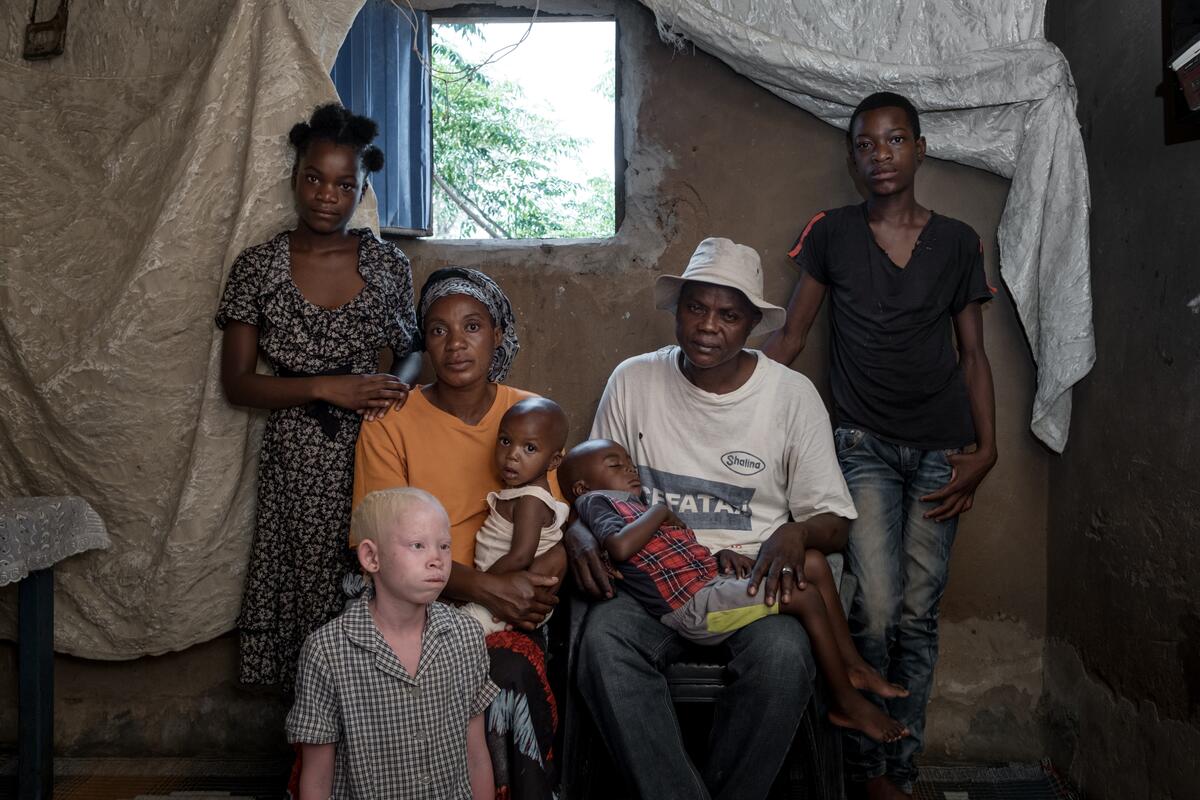Generous Pakistani civilians donate food, other aid and cash to displaced
Generous Pakistani civilians donate food, other aid and cash to displaced

ISLAMABAD, Pakistan, May 26 (UNHCR) - The unprecedented flood of people displaced by fighting in north-west Pakistan is triggering an outpouring of generosity from Pakistani civilians.
The UN refugee agency, which is delivering assistance to tens of thousands of displaced people in camps and elsewhere in the community where they are seeking refuge, is witnessing countless acts of charity by private citizens.
In North West Frontier Province's (NWFP) Jalozai camp, for example, a single donor has given enough flour, sugar, spices, tea, and flavoured syrup for some 2,400 people.
Elsewhere, citizens are bringing food, clothes and mattresses to the thousands of families staying in schools. One woman, now resident in Islamabad but originally from the NWFP district of Mardan, travels every weekend to her home town carrying cash that she collects from her friends in the capital to give to displaced people staying in schools. She also brings clothes and tea.
"Our whole family got involved in this story," she told UNHCR earlier this week. "We also invited all families originally from Mardan and living in Islamabad to give us cash to buy items for IDPs (internally displaced people)," the woman added.
"We won't get tired of having them with us," said another woman in Mardan, whose family is hosting eight displaced people in their communal room, providing them with food and mattresses. "These people are from our country."
These are tough times in northern Pakistan. According to provincial government authorities, the number of displaced people from the Swat, Lower Dir and Buner districts registered since May 2 in a fast track process has now reached more than 2.38 million, though those figures are being cross-checked and verified in a second stage process, and may change.
On average in these districts, some 18,000 families, about 126,000 people, are registered every day by local authorities. Many others are still trapped in the conflict zone. Each time the government lifts the curfew, thousands rush to flee.
A bus ride from the Swat district town of Mingora to Mardan town has tripled (from 2,000 rupees, or US$24, to 6,000 rupees), according to people escaping the area. An old man from Barikot in Swat Valley, who arrived Tuesday with his family in Mardan district, said he was forced to sell his only cow - for less than a quarter of the price he paid for it - in order to cover the busfare from his village to a safer area.
About 10 percent of the displaced are living in camps and the rest are staying with friends or in communal buildings. UNHCR is providing assistance to people in camps as well as those living outside camps.
To provide shelter from the oppressive heat, UNHCR is working with the government authorities to build separate shaded communal areas for men and women in Jalala, Sheikh Yaseen, Sheikh Shahzad and Yar Hussein camps. In Sheikh Shazad, workers have set up 14 shaded areas, half for men and the other half for women. In those sectors where electricity has been installed, communal spaces have electric water coolers and electric points for fans, lighting and recharging of electrical devices such as mobile phones.
UNHCR has started to distribute bricks to each family to build individual kitchen stoves in the camps as well. The stoves will allow the displaced people to cook their own meals with rations from the World Food Programme. Up to now, the government has provided people with cooked meals through private contractors. In this project, UNHCR is working with its partner the Communal Development Programme.
UNHCR is also stepping up its assistance to people residing in schools in Mardan and Swabi districts. In the Mardan area, UNHCR teams have almost completed assessments of 448 schools, and distribution of relief items is under way to 4,500 families, or about 37,000 people.
On Saturday, UNHCR's relief supplies for its operation in north-west Pakistan were bolstered by a 36-tonne consignment of tents, plastic rolls, kitchen sets, jerry cans, soap, generators, water tanks and purification equipment donated and airlifted to Islamabad by the Italian government.
Meanwhile, the Relief Bank set up by UNHCR in the NWFP town of Nowshera has been receiving in-kind donations from private donors, ranging from sleeping mats to water coolers.
UNHCR is continuing to buy more supplies from within Pakistan and to ship items from stockpiles around the world. However, UNHCR urgently needs funds to accelerate the purchase of relief supplies for its operation. On Friday, as part of a larger joint UN appeal, UNHCR called for another US$84 million for its operation helping displaced people in north-west Pakistan until the end of 2009.
For women like Kharo, a government worker who fled her village in Swat and is now staying with her family in a school in Mardan, the assistance from Pakistanis and UNHCR cannot come too quickly. "I am so grateful that people from Mardan are providing us with food," she said.
By Ariane Rummery in Islamabad and Helene Caux in Peshawar, Pakistan








